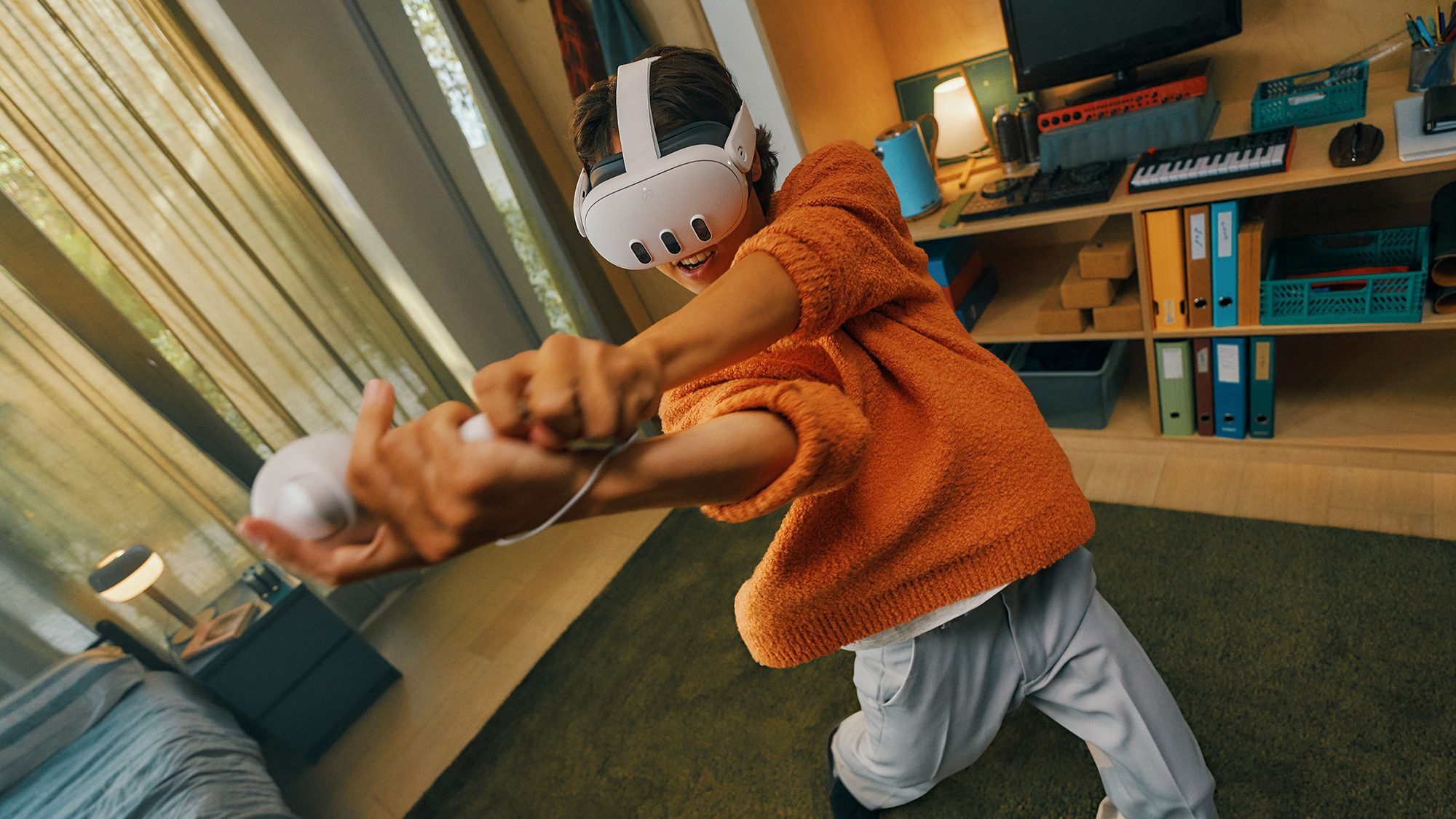Meta Quest VR’s new deal could be massive
Meta is teaming up with Asus, Lenovo and Microsoft to create a whole bunch of new VR and mixed reality headsets


Get all the latest news, reviews, deals and buying guides on gorgeous tech, home and active products from the T3 experts
You are now subscribed
Your newsletter sign-up was successful
Meta just made a very smart move that could change the game for consumer VR. Its virtual reality OS is now available for other manufacturers to use, and that means headsets are already on the way from big names including Asus, Lenovo and Microsoft. In what could be bad news for Sony, whose PSVR 2 is struggling to set the world on fire, one of those headsets will be a performance gaming headset under Asus's Republic of Gamers brand.
The newly renamed operating system, Meta Horizon OS, was announced on the official Meta blog. In addition to the RoG headset it also explained that Lenovo will "draw on its experience co-designing Oculus Rift S" as well as its laptop experience "to develop mixed reaity devices for productivity, learning and entertainment" and that Meta is working with the Xbox team "to create a limited-edition Meta Quest, inspired by Xbox."
Why Meta's move could be an AR/VR/MR game changer
Meta will also be making its App Lab and Horizon Store more accessible across the ecosystem. The promise is that developers will be able to create and sell apps for all kinds of headsets for all kinds of manufacturers – something that Apple and Sony will be watching very carefully. Think Google Play for VR.
This could be a really big deal because at the moment VR and mixed reality are largely defined by manufacturers doing their own thing, with varying degrees of success – so you've got the Meta devices, Apple's Vision Pro, Sony's PSVR 2 and so on. And so far none of them has emerged as the one true VR headset to rule them all; I became so jaded with the lack of decent content for my PSVR 2 that I sold it.
What Meta is clearly hoping for is to repeat history: again and again tech dominance is often because of business strategy rather than tech, so for example Android's huge success is due in part to the huge number of hardware firms who made products for it. If Meta and its partners can create a whole bunch of really compelling hardware options, Horizon OS could become the dominant platform for virtual and mixed reality.
The announcement is both good news and bad news for potential Quest buyers: the platform is likely to get a lot more popular, and that means much more in the way of games and apps to play. But it also means you might want to hang on to see what Meta's partners produce before shelling out any money on a new VR headset.
Get all the latest news, reviews, deals and buying guides on gorgeous tech, home and active products from the T3 experts
Writer, musician and broadcaster Carrie Marshall has been covering technology since 1998 and is particularly interested in how tech can help us live our best lives. Her CV is a who’s who of magazines, newspapers, websites and radio programmes ranging from T3, Techradar and MacFormat to the BBC, Sunday Post and People’s Friend. Carrie has written more than a dozen books, ghost-wrote two more and co-wrote seven more books and a Radio 2 documentary series; her memoir, Carrie Kills A Man, was shortlisted for the British Book Awards. When she’s not scribbling, Carrie is the singer in Glaswegian rock band Unquiet Mind (unquietmindmusic).
